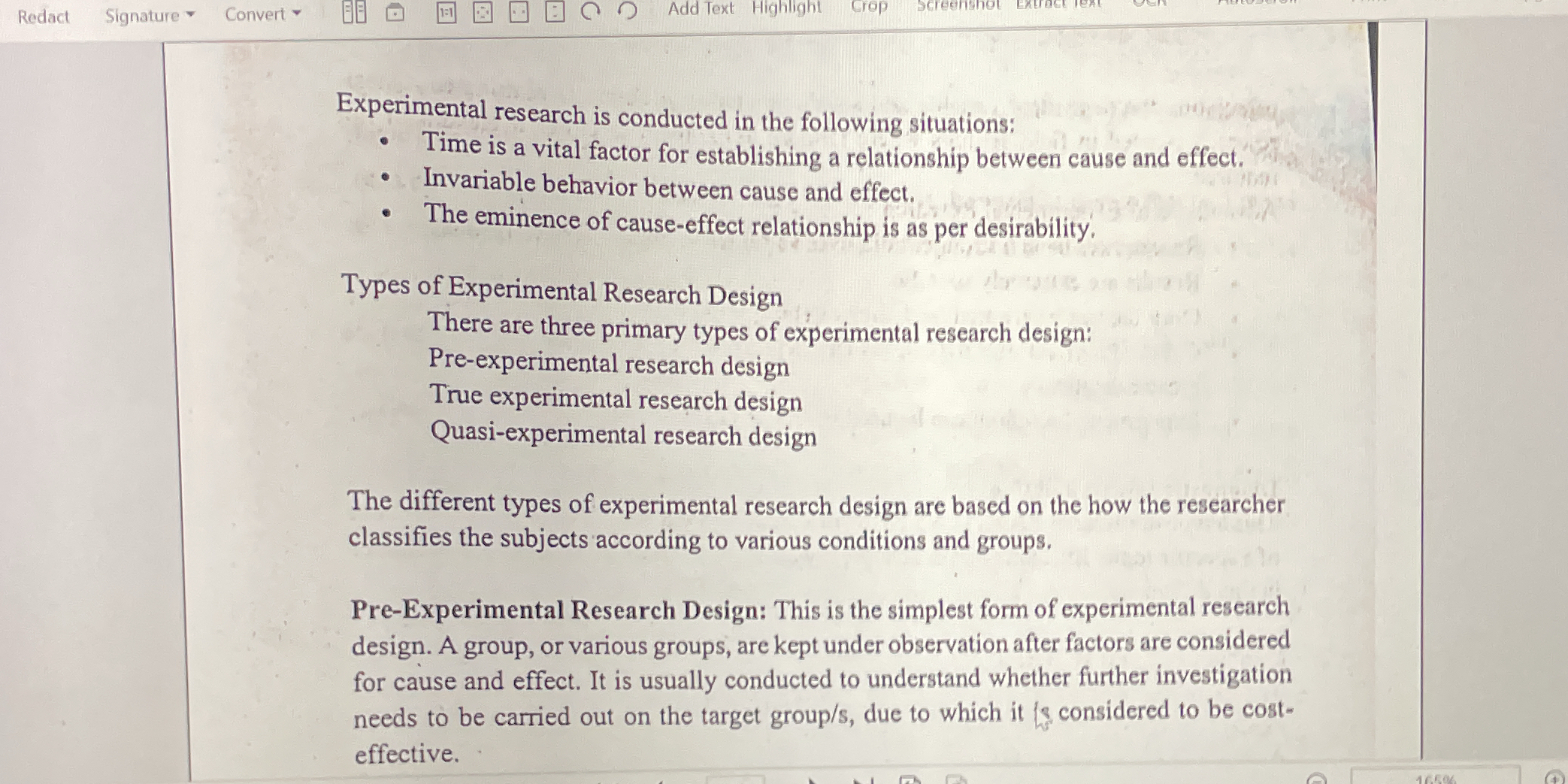Explain experimental research.

Understand the Problem
The image provides information about experimental research, including the situations in which it is conducted and the different types of experimental research designs (pre-experimental, true experimental, and quasi-experimental).
Answer
Experimental research tests a hypothesis by manipulating variables to find cause-effect relationships.
Experimental research tests a hypothesis by manipulating independent variables to observe effects on dependent variables. It's used when time is important for cause-effect relationships, when cause and effect show invariable behavior, and when the cause-effect relationship's prominence is desired. Types include pre-experimental, true experimental, and quasi-experimental designs.
Answer for screen readers
Experimental research tests a hypothesis by manipulating independent variables to observe effects on dependent variables. It's used when time is important for cause-effect relationships, when cause and effect show invariable behavior, and when the cause-effect relationship's prominence is desired. Types include pre-experimental, true experimental, and quasi-experimental designs.
More Information
Experimental research is a cornerstone of scientific inquiry, allowing researchers to establish cause-and-effect relationships with a high degree of confidence.
Tips
A common mistake is to confuse correlation with causation. Experimental research helps minimize this error by controlling variables.
Sources
- What is Experimental Research: Definition, Types & Examples - entropik.io
- What is experimental research: Definition, types & examples - forms.app
- Defining Experimental Research - resources.pollfish.com
AI-generated content may contain errors. Please verify critical information